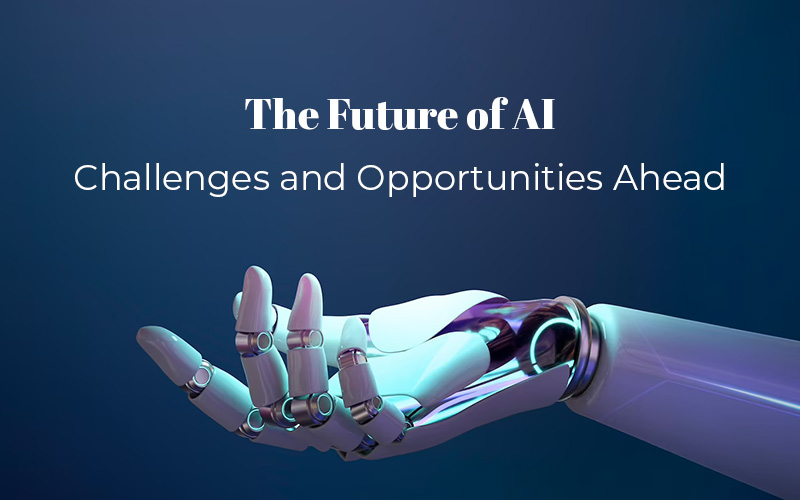
The Future of AI: Challenges and Opportunities Ahead
The field of artificial intelligence (AI) has
advanced rapidly over the past decade, with breakthroughs in deep learning,
natural language processing, and computer vision transforming how we live and work.
Self-driving cars and virtual personal assistants are just two of AI's many
impacts on our society, and it has the potential to further innovate in the
future. However, as AI continues to evolve, new challenges and opportunities
lie ahead. In this read, we will explore the possible future directions for AI
research and development and the challenges and opportunities that come with
them.
The rise of autonomous systems
One of the most significant trends in AI is the
development of autonomous systems that can operate with minimal human input.
From drones to robots, autonomous systems are becoming increasingly common in a
range of industries, from manufacturing to agriculture. The potential benefits
of autonomous systems are enormous, including improved efficiency, reduced
costs, and increased safety. However, the development of autonomous systems
also raises significant ethical and regulatory concerns. For example, how can
we ensure that autonomous systems are safe and reliable, and how can we address
the potential impact on employment?
The development of explainable AI
As AI becomes more sophisticated, it becomes
increasingly challenging to understand how it makes decisions. This lack of
transparency can lead to a lack of trust in AI systems, especially in critical
areas such as healthcare and finance. To address this issue, researchers are
developing explainable AI, which allows users to understand how AI systems make
decisions. Explainable AI could have significant benefits, such as improved
trust and accountability, but it also raises questions about the trade-offs
between explainability and performance.
The need for responsible AI
As AI becomes more pervasive, it is essential to
ensure that it is developed and used responsibly. Responsible AI means that AI
systems are designed to respect human values and rights and that they are used
in ways that are fair and transparent. Responsible AI is not just a technical
challenge, but also a social and ethical one. It requires collaboration between
researchers, policymakers, and other stakeholders to develop standards and
guidelines that ensure that AI is used for the benefit of society.
The importance of data ethics
Finally, the development of AI depends on the
availability of high-quality data. However, the use of data raises significant
ethical issues, such as the potential for bias and discrimination. To ensure
that data is used ethically, it is essential to develop data ethics frameworks
that promote transparency, accountability, and fairness. Data ethics is a critical
issue that requires collaboration between data scientists, policymakers, and
other stakeholders to ensure that data is used in ways that benefit society.
The future of
AI is both exciting and challenging. As AI continues to evolve, it will create new
opportunities for innovation and transform the way we live and work. However,
it also raises significant ethical and regulatory concerns that must be
addressed. By working together, researchers, policymakers, and other
stakeholders can ensure that AI is developed and used in ways that benefit
society and respect human values and rights.
Disclaimer: The opinions expressed in this article are those of the author's. They do not purport to reflect the opinions or views of The Critical Script or its editor.

Newsletter!!!
Subscribe to our weekly Newsletter and stay tuned.

















Related Comments